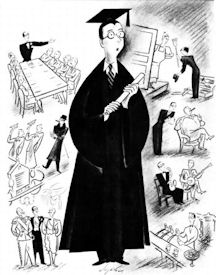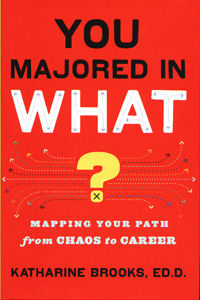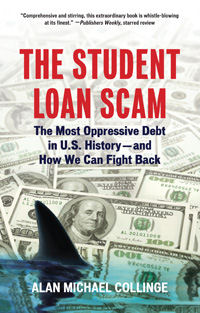SAT, ACT, PSAT, Math II Test Prep 0
For many years now the SAT, ACT and PSAT tests have been a “right of passage” on the way to college acceptance. It has spawned a huge test prep industry with too many options to count. But a student who finds and applies him or herself to a universally effective test prep program could be offered significant Merit scholarships from some very good colleges!
That is the GOOD news. But there is BAD news too. The BAD news is that such a test prep program is very hard to find. But the real GOOD news is that we have found it for you!
It is EPrep.com. Check it out NOW. Take the eye-opening ~ “light bulb above the head” FREE tour complete with sample SAT or ACT questions. Then give us a call at (978) 820-1295 so we can discuss the best program (at special reduced prices) for you. 
Best wishes for college acceptance to the colleges of your choice,
Eric Goodhart
help@SmartCollegePlanning.org
Test Prep Options 0
 It seems like yesterday that I was sweating over the impending SAT test in high school. The memory stays with me because I work with bright-eyed high school kids every day. I feel their pain.
It seems like yesterday that I was sweating over the impending SAT test in high school. The memory stays with me because I work with bright-eyed high school kids every day. I feel their pain.
In late winter and early spring juniors with college aspirations are intent on preparing for the most important tests in the college planning process. The last half of the junior year is replete with tests; the SAT is not the only one.
SAT II Subject Tests, the ACT test, Advanced Placement and International Baccalaureate tests may also be on a high school junior’s calendar, not to mention mid-terms, POP quizzes (my favorite) and final exams.
To make it more confusing, the College Board last year changed its policy as to SAT score reporting. Even with that new change, there will still be many competitive colleges that will want to receive ALL the test scores a student took, not just a self-selected few. (Check each college’s website using the AAA method to find out their policies.)
By the way, here is a comparison of the new SAT and ACT tests. Some students may do better in the ACT if they have an overall higher GPA in all five core academic subjects. In addition, many colleges will except strong ACT composite scores in lieu of SAT II Subject tests.
Reflecting upon my high schools years, Princeton was just the name of a University, not of a test prep organization. Today there are so many test prep companies, test prep tutors, books, and websites that one can be overwhelmed by the choices.
 The question is which one, if any, should you invest your time and money? But the question is not IF anymore because high test scores not only enhance admission chances, but could result in thousands of dollars in merit scholarships from some very good colleges.
The question is which one, if any, should you invest your time and money? But the question is not IF anymore because high test scores not only enhance admission chances, but could result in thousands of dollars in merit scholarships from some very good colleges.
That used to the big question until I found this one. Ironically, it was created by two Princeton University graduates, Eric Barnes and Karl Schellscheidt. They have done a brilliant job in putting together a fun easy to follow method to prepare for not just the SAT, but the ACT and the Math II Subject test.
Here is a summary of their philosophy on Standardized Test Preparation. It will reveal some of the reasons why students are getting 200 to 300 higher scores on their SAT after prepping with EPrep.com.
If you would like to take advantage of one or more of EPrep programs give us a call and ask about the special discounts (up to 25%) we offer.
If you have a junior or sophomore, call today! Time is on your side today and could mean literally thousands of dollars of toward college tuition costs tomorrow.
Timeline Note 0
As I look at the calendar, I am reminded of two things. One: This is not a Leap Year and we do not have an extra day to accomplish everything we want. Two: It is time to look at our College Planning Timeline to see what needs to be done now or by now.
With college costs and student debt continuing to go up, we recommend to all families to complete a Dry Run as soon as the freshman year. (Step three in the timeline.) The biggest benefits of doing this early are that it will keep you out of the hospital (sticker shock) and lessen the need to borrow unnecessarily for college. College financial aid policies are changing frequently. The middle and upper-middle income families are not helped by these changes.
Look at this announcement made in 2008 at Williams College regarding their no loan policy. Several other competitive colleges have followed suit since then. With the highly questionable economic shut down because of the latest virus scare is causing universal financial instability. Therefore is of paramount importance to explore your options and understand the many different financial aid calculations college use, when you do a “Dry Run” long before high school senior year.
 One of the steps in college planning is becoming aware of the true costs of college and taking realistic steps to ensure that the colleges on a child’s list are not only academically and socially suitable, but are affordable. If you have not done this yet, then what are you waiting for? Student debt as shown in this recent study is out of control, college graduates need not graduate with a mountain of debt.
One of the steps in college planning is becoming aware of the true costs of college and taking realistic steps to ensure that the colleges on a child’s list are not only academically and socially suitable, but are affordable. If you have not done this yet, then what are you waiting for? Student debt as shown in this recent study is out of control, college graduates need not graduate with a mountain of debt.
At a recent high school workshop I gave, a parent asked what is the most common mistake a family makes in the college planning process. Good question with an easy answer: Not doing a realistic estimate of the bottom line cost of the colleges on their child’s list.
The Dry Run is the first step on the way to a solution.
If you know a family with high school sophomores or juniors this is the best time for the former and a priority for the latter to complete a Dry Run with us now.
There are 72 colleges in the country that have some sort of no-loan policies. But colleges are making adjustments because money (credit) is tight for them too. Loan and merit scholarship policies at most colleges in the last few years have changed. How those changes effect a family depends on the college and the profile of the applicant. To learn how your student will be assessed by the college admissions committees at his or her colleges, call us today at (978) 820-1295.
Williams College 0
Williams College Nixes No-Loan Student-Aid Policy After Endowment Falls
By Ashley Marchand
Williams College is eliminating its no-loan student-aid program that began in the fall of 2008, saying that it can no longer afford the policy because of its battered endowment.
 The college in Massachusetts, which has a sticker price in 2020 of $74,880 a year, was one of more than 40 in the United States that had no-loan or limited-loan student-aid programs, which eliminate or cap loans for students with demonstrated financial need and replace them with institutional grants and scholarships.
The college in Massachusetts, which has a sticker price in 2020 of $74,880 a year, was one of more than 40 in the United States that had no-loan or limited-loan student-aid programs, which eliminate or cap loans for students with demonstrated financial need and replace them with institutional grants and scholarships.
It is one of a number of selective private colleges at the time buoyed by swelling endowments that announced no-loan policies in quick succession in 2007 and 2008. Then the bottom fell out of the financial markets, and colleges’ endowments plummeted. Williams’ dropped from $1.9-billion in June 2008 to $1.4 billion a year later.
At the time, in a letter dated Sunday, the college’s interim president announced that its no-loan program will end in the fall of 2011. “Williams is in a strong financial situation by virtually any comparison”except with that of the Williams of three years ago,” William G. Wagner, the interim president, said in the letter.
Another “Age Old Question” 0
Another Age Old Question
If you are a current college student, are you always being asked, What is your major?
If you have one, why did you pick that one? Does the question annoy you because you feel that you are going to have to explain your decision? Perhaps you are not even sure why, thus making you feel more uncomfortable.
I completely understand if you are. But if you have already completed our insightful self-assessment and still are not comfortable with your academic direction, return to that online link now. It is resource to access all during your college years. (Call me if it has been misplaced.) One of things that we help students with while they are still in high school is to identify their innate characteristics. That is, what are their natural strengths and weaknesses that make up their core personality?
 Personalities, (barring some chemical changes in the body) pretty much remain the same throughout our lifetime. Interests, aptitudes and attitudes change. So, why not understand and appreciate who you are and explore the possibilities that stem from there?
Personalities, (barring some chemical changes in the body) pretty much remain the same throughout our lifetime. Interests, aptitudes and attitudes change. So, why not understand and appreciate who you are and explore the possibilities that stem from there?
Our educational system is set up to take us from secondary school, where we are supposed to get a solid grounding in the basic academic subjects, and then on to college where we get to pick the courses we want. Assuming college is necessary, however, are you in college to learn what you want, or are you there to learn what someone else wants? Whether it is a well-meaning parent or prospective employer in a field that you are told, pays well?
Recent Stanford University graduate, Scott Keys, has shared what I believe to be a very helpful insight relating his observations and recommendations. Hopefully, you are getting the kind of advice from your college advisors as to choosing a major that is personal to you and not “cookie cutter”.
As he says, choosing a major is an important decision and students are right to seek outside counsel when figuring out what they want to study. Give us a call or contact us at the right, if you want to explore the possibilities. It all starts with a FREE “get acquainted” conversation.
Stop Asking Me My Major 0
Stop Asking Me My Major
By Scott Keyes
One of my best friends from high school, Andrew, changed majors during his first semester at college. He and I had been fascinated by politics for years, sharing every news story we could find and participating in the Internet activism that was exploding into a new political force. Even though he was still passionate about politics, that was no longer enough. “I have to get practical,” he messaged me one day, “think about getting a job after graduation. I mean, it’s like my mom keeps asking me: What can you do with a degree in political science anyway?”
 I heard the same question from my friend Jesse when students across campus were agonizing about which major was right for them. He wasn’t quite sure what he wanted to study, but every time a field sparked his interest, his father would pepper him with questions about what jobs were available for people in that discipline. Before long, Jesse’s dad had convinced him that the only way he could get a job and be successful after college was to major in pre-med.
I heard the same question from my friend Jesse when students across campus were agonizing about which major was right for them. He wasn’t quite sure what he wanted to study, but every time a field sparked his interest, his father would pepper him with questions about what jobs were available for people in that discipline. Before long, Jesse’s dad had convinced him that the only way he could get a job and be successful after college was to major in pre-med.
My friends’ experiences were not atypical.
Choosing a major is one of the most difficult things students face in college. There are two main factors that most students consider when making this decision. First is their desire to study what interests them. Second is the fear that a particular major will render them penniless after graduation and result in that dreaded postcollege possibility: moving back in with their parents. 
All too often, the concern about a major’s practical prospects are pushed upon students by well-intentioned parents. If our goal is to cultivate students who are happy and successful, both in college as well as in the job market, I have this piece of advice for parents: Stop asking, “What can you do with a degree in (fill in the blank)?” You’re doing your children no favors by asking them to focus on the job prospects of different academic disciplines, rather than studying what interests them.
It is my experience, both through picking a major myself and witnessing many others endure the process, that there are three reasons why parents (and everyone else) should be encouraging students to focus on what they enjoy studying most, rather than questioning what jobs are supposedly available for different academic concentrations.
Making College ‘Relevant’ 0
Making College Relevant
By KATE ZERNIKE
 Thomas College, a liberal arts school in Maine, advertises itself as Home of the Guaranteed Job! Students who can’t find work in their fields within six months of graduation can come back to take classes free, or have the college pay their student loans for a year.
Thomas College, a liberal arts school in Maine, advertises itself as Home of the Guaranteed Job! Students who can’t find work in their fields within six months of graduation can come back to take classes free, or have the college pay their student loans for a year.
The University of Louisiana, Lafayette, is eliminating its philosophy major, while Michigan State University is doing away with American studies and classics, after years of declining enrollments in those majors.
And in a class called The English Major in the Workplace, at the University of Texas, Austin, students read Death of a Salesman but also learn to network, write a resume and come off well in an interview.
Even before they arrive on campus, students and their parents are increasingly focused on what comes after college. What is the return on investment, especially as the cost of that investment keeps rising? How will that major translate into a job?
The pressure on institutions to answer those questions is prompting changes from the admissions office to the career center. But even as they rush to prove their relevance, colleges and universities worry that students are specializing too early, that they are so focused on picking the perfect major that they do not allow time for self-discovery, much less late blooming.
 The phrase drives me crazy. What are you going to do with your degree? but I see increasing concerns about that, says Katharine Brooks, director of the liberal arts career center at the University of Texas, Austin, and author of You Majored in What? Mapping Your Path from Chaos to Career. Particularly as money gets tighter, people are going to demand more accountability from majors and departments.
The phrase drives me crazy. What are you going to do with your degree? but I see increasing concerns about that, says Katharine Brooks, director of the liberal arts career center at the University of Texas, Austin, and author of You Majored in What? Mapping Your Path from Chaos to Career. Particularly as money gets tighter, people are going to demand more accountability from majors and departments.
Consider the change captured in the annual survey by the University of California, Los Angeles, of more than 400,000 incoming freshmen. In 1971, 37 percent responded that it was essential or very important to be very well-off financially, while 73 percent said the same about developing a meaningful philosophy of life. In 2009, the values were nearly reversed: 78 percent identified wealth as a goal, while 48 percent were after a meaningful philosophy.
The shift in attitudes is reflected in a shifting curriculum. Nationally, business has been the most popular major for the last 15 years. Campuses also report a boom in public health fields, and many institutions are building up environmental science and just about anything prefixed with bio. Reflecting the new economic and global realities, they are adding or expanding majors in Chinese and Arabic. The University of Michigan has seen a 38 percent increase in students enrolling in Asian language courses since 2002, while French has dropped by 5 percent.
Thinking About the Ivy League? 0
Â
Here is the reason why one particularly talented student chose Yale. WARNING! If you do not have a sense of humor or appreciate “out of the box” creative thinking by college students,  avoid watching this video.Â
Where is the Money? 0
Borrowers Beware
 Recently I have been asked to help recent college graduates who are faced with enormous student debt. In some instances, they have had taken co-signer loans while in college. Those lenders like Sallie Mae were offering them in incredible amounts over the last 10 years. The rules varied as to when (and if) the creditworthy cosigner would be released from the obligation.
Recently I have been asked to help recent college graduates who are faced with enormous student debt. In some instances, they have had taken co-signer loans while in college. Those lenders like Sallie Mae were offering them in incredible amounts over the last 10 years. The rules varied as to when (and if) the creditworthy cosigner would be released from the obligation.
In 90% of the cases that will never happen and the lenders know that.
This article is about the misinformation and complex terms in college lending. Unfortunately, Congress over the years has been heavily influenced by the lending companies (now being bailed out by taxpayer money) and the colleges themselves.
None of them have the student’s long-term best interest as a priority. That is a shame. To get a quick understanding of the problem listen to this.
At Programs for Education, we have options ambitious students can take advantage of to pay off their debt faster. If you know of any student facing enormous debt now or in the future, give us a call. Many families are paying for college from cash flow alone with this program.
In addition, all current students can learn about the various loan forgiveness and debt relief programs for graduates entering certain fields of employment. In the meantime, if a student is considering future college costs, now is the time to do a Dry Run to see how much they may have to borrow, if at all.
Student Loan Scam 0
 Not everyone would willingly choose to become the public face of the debt-ridden. Alan Collinge didn’t exactly choose to do so, defaulting on $38,000 in student loans only after a series of missteps and strokes of misfortune, but he has embraced his situation with gusto, founding StudentLoanJustice.org to advocate for distressed borrowers and now writing a book, The Student Loan Scam (Beacon Press).
Not everyone would willingly choose to become the public face of the debt-ridden. Alan Collinge didn’t exactly choose to do so, defaulting on $38,000 in student loans only after a series of missteps and strokes of misfortune, but he has embraced his situation with gusto, founding StudentLoanJustice.org to advocate for distressed borrowers and now writing a book, The Student Loan Scam (Beacon Press).
Collinge’s tactics have at times been controversial — he has been criticized for personally attacking student loan lobbyists, for instance — but with the Obama administration putting the student loan programs front and center in its higher education agenda, the industry he writes about and his views are likely to remain relevant. In an e-mail interview, Collinge discussed his personal experiences and his assertion that none of the policy changes currently being debated will make a difference for borrowers without reform of federal bankruptcy laws.
Q. Can you give our readers the 1-minute version of how you ended up getting into such a jam with student loans? How much of your situation evolved because of your own (potentially flawed) decisions, and how much because of the unfair practices or policies or rules by other parties?
